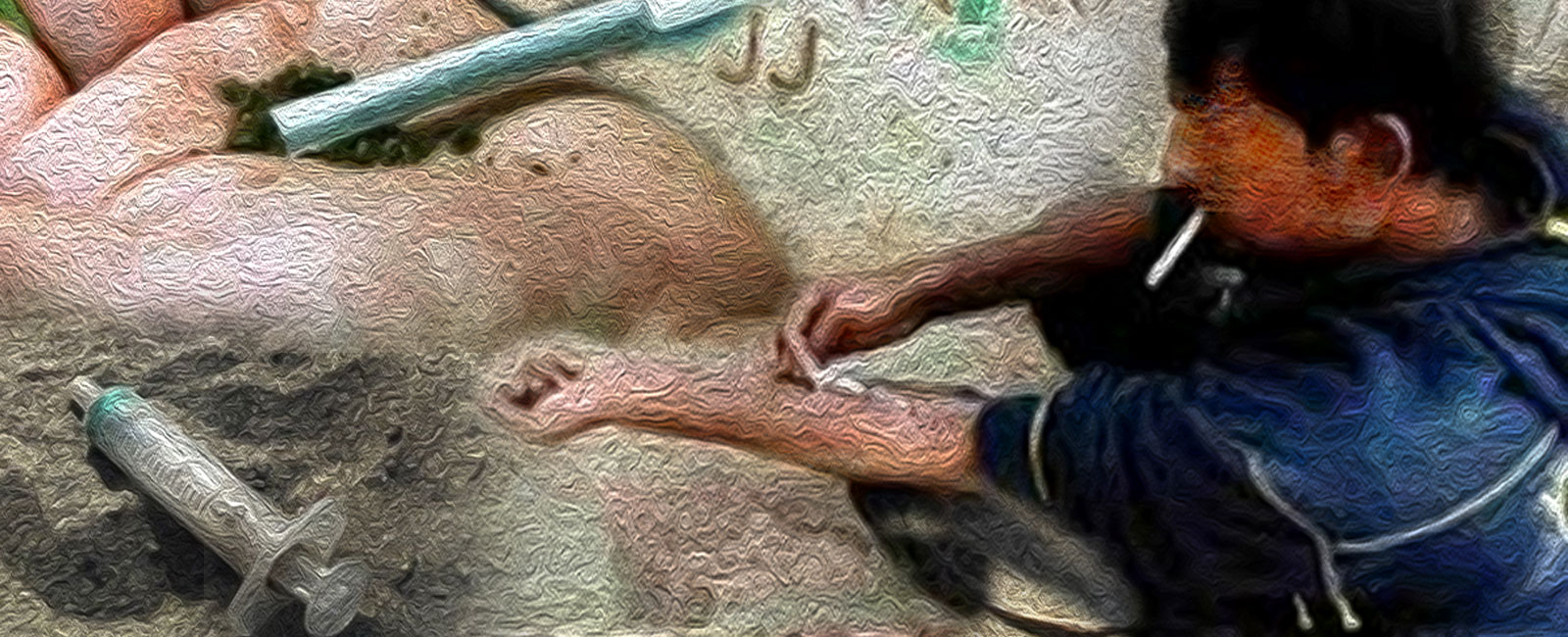A city's underbelly: Where despair and addiction collide
Most active drug users find themselves homeless, abandoned by their families, and without any legal documentation to establish identity or seek help

Lahore’s scorching sun beat down on Nasir*, as he recounted the harrowing tale of his friend, who a few days ago lost his arm when a train ran over him, after he collapsed on the tracks.
But the real horror, Nasir says, came not from the accident itself, but from the subsequent treatment — or lack thereof.
"They wouldn't touch him at the hospital," Nasir lamented, a bitter taste lingering in his voice. Rushed to a nearby public hospital, Nasir's friend was met with not compassion, but disdain. "They screamed insults, treated us worse than animals,” he added.
Both Nasir and his friend are part of a marginalised community often cast in shadows: persons who inject drugs.
Nasir, just 24, started using at 15, introduced by his employer, a cook who owned a small barbecue restaurant in Lahore. He started with smoking charas and eventually progressed to injecting heroin.
Years of heroin use culminated in an HIV diagnosis, which he recently found out about, leaving him oscillating between the streets and his mother's home in Lahore’s Ferozepur Road area.
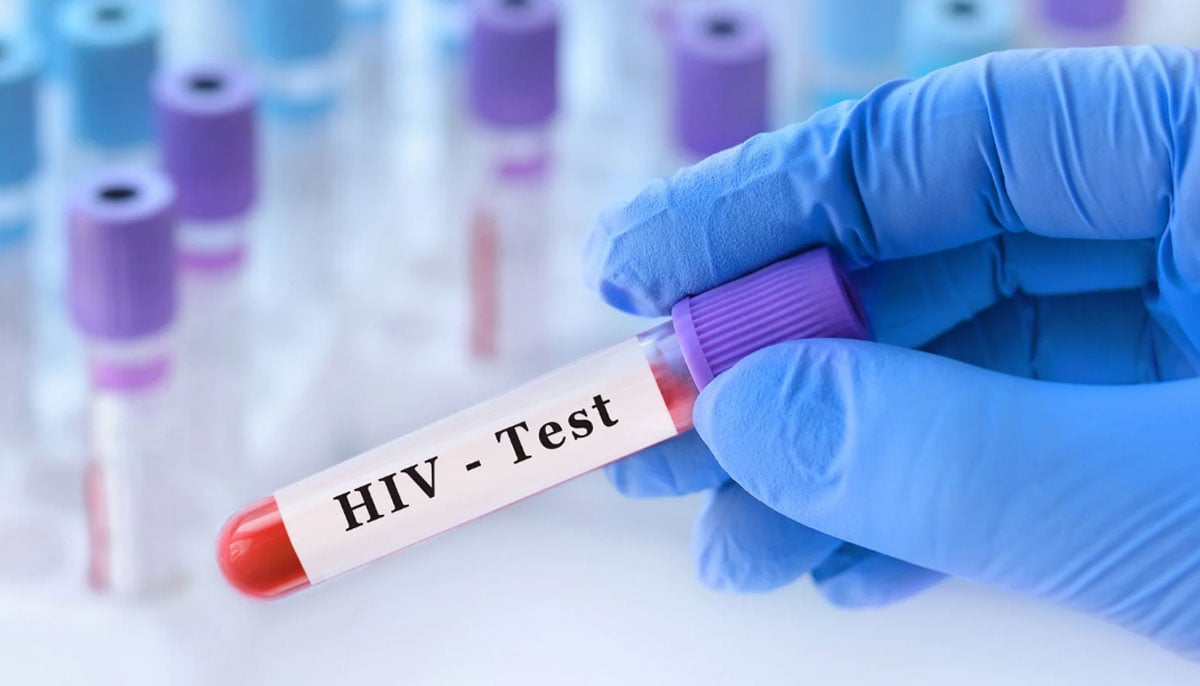
The youngest of four siblings, Nasir avoids talking about his father but adds that his mother is still good to him. “I’m stuck. I really want to quit, but I’m stuck,” he lamented. “When I visit a hospital, they look at me as if I am their enemy.”
Nasir's story is not unique. Pakistan grapples with a significant drug use problem, with over 4.25 million people estimated to be dependent, according to a 2013 UNODC report. But despite the high prevalence of drug use, it wasn’t till 2022 that the government of Pakistan with the help of UNODC launched a new national survey on drug use in the country, which has yet to be completed.
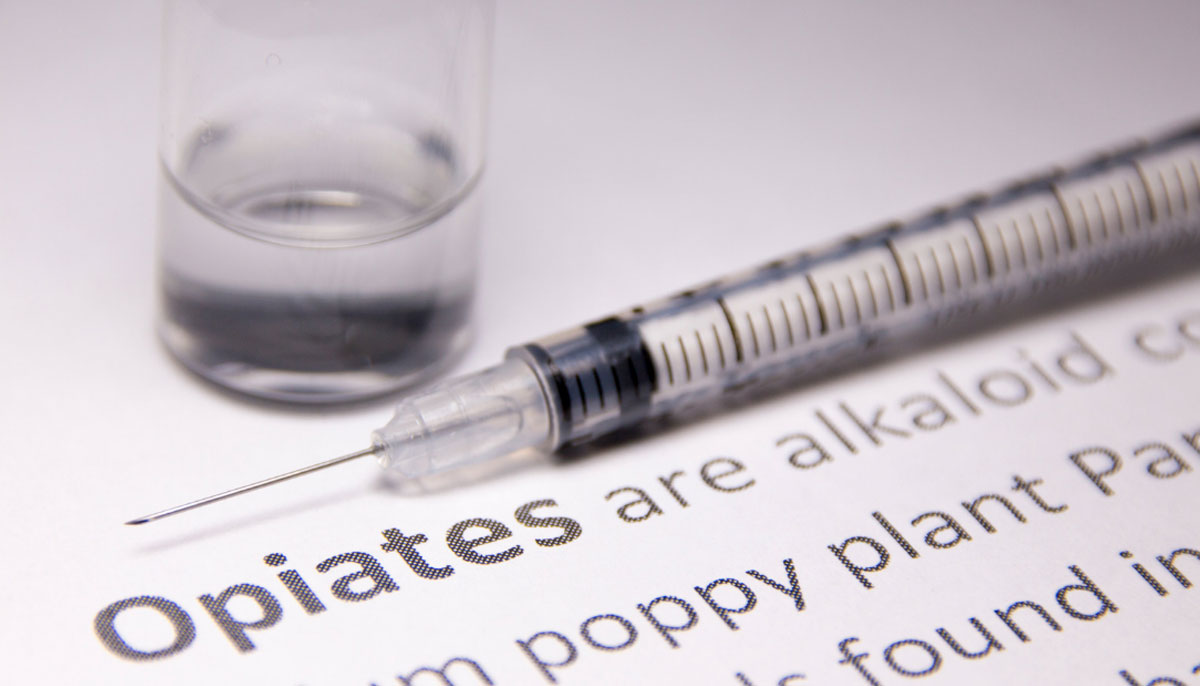
The 2013 report also highlighted a strong desire for treatment amongst users, adding that lack of access and affordability were major hurdles, and women were even less likely to receive treatment than men.
Furthermore, the data is skewed heavily towards younger demographics, with the 15-39 age bracket worst affected.
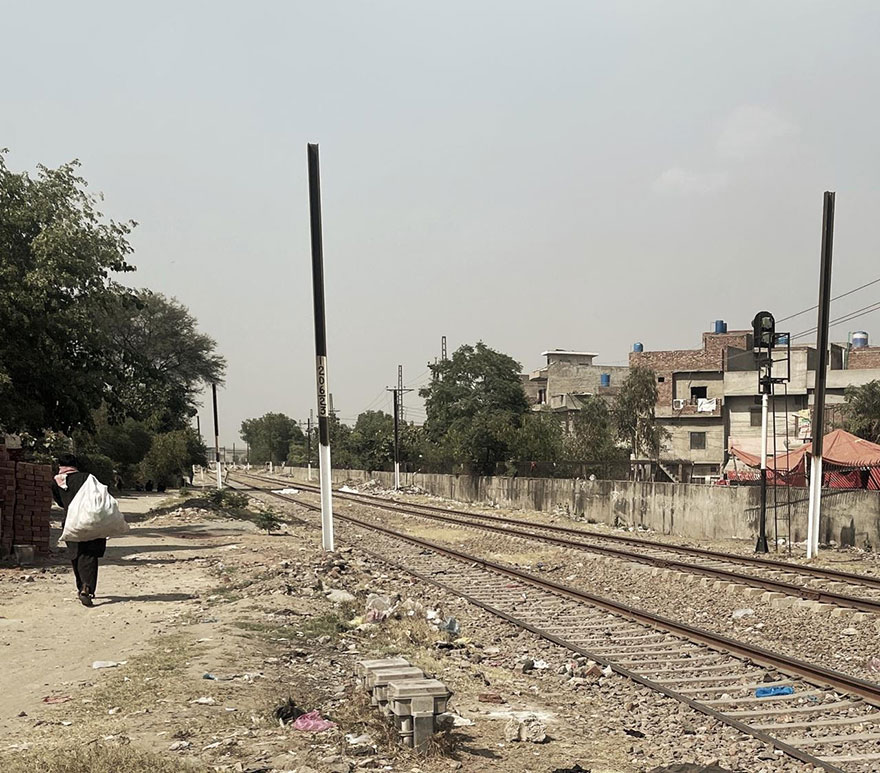
Alone, abandoned and stateless
Most active drug users find themselves homeless, abandoned by their families, and without any legal documentation to establish identity, explains Sheheryar Ahmad, a site manager in Lahore who works for a non-profit organisation.
Ahmad is associated with the Nai Zindagi Trust, an Islamabad-based NGO, which works to prevent drug use related harms, such as the transmission of HIV/Aids and Hepatitis C viruses.
“They [the users] don’t even possess basic documents like a national identity card,” he tells Geo News.
Ahmad adds that this is because the majority of the users have lived on the streets since a young age, thus their families never obtained their ID cards for them, or their families have disowned them, and their fathers or brothers refuse to assist them in acquiring identity documents.
The lack of documentation, said Ahmad, makes it challenging for those seeking treatment to obtain medication, visit a public or private hospital, or even enroll in a rehabilitation center.
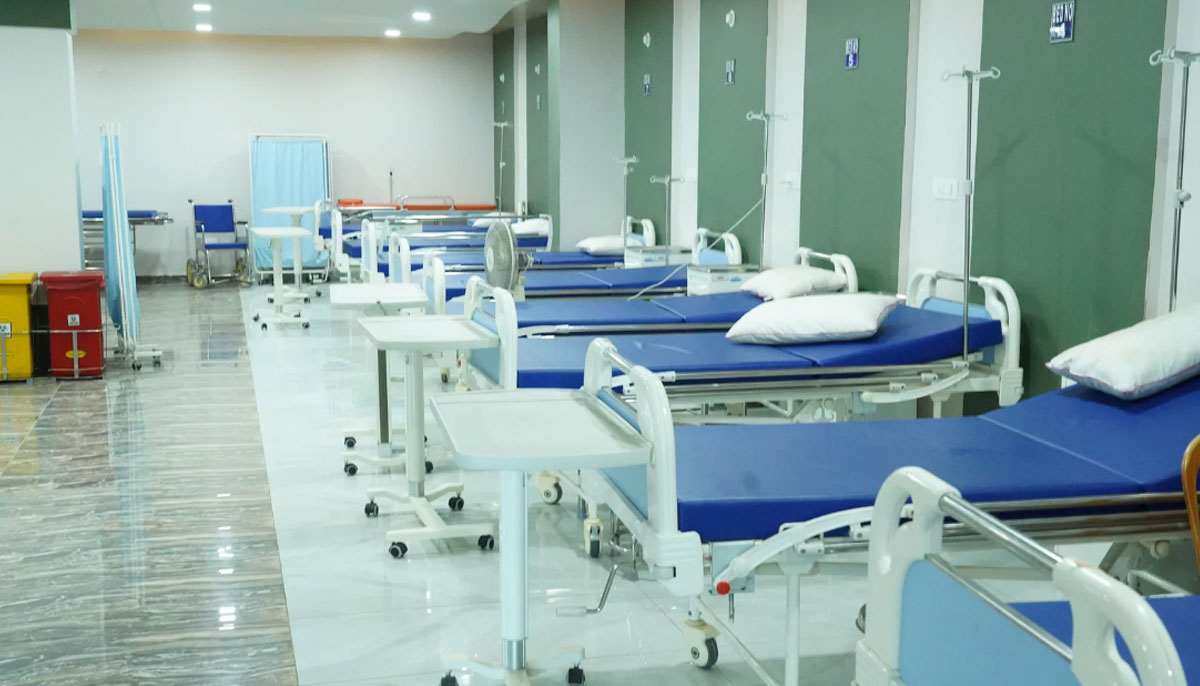
Several individuals employed in the healthcare sector in Punjab, who preferred to remain anonymous, disclosed to Geo News that the possession of a national identity card is a prerequisite for individuals seeking registration in the government’s AIDS Control programme within the province.
In fact even the “model” drug rehabilitation centre for men in the city of Multan, established by Punjab’s ministry of social welfare, lists a national identity card as a mandatory requirement for enrolment on its website.
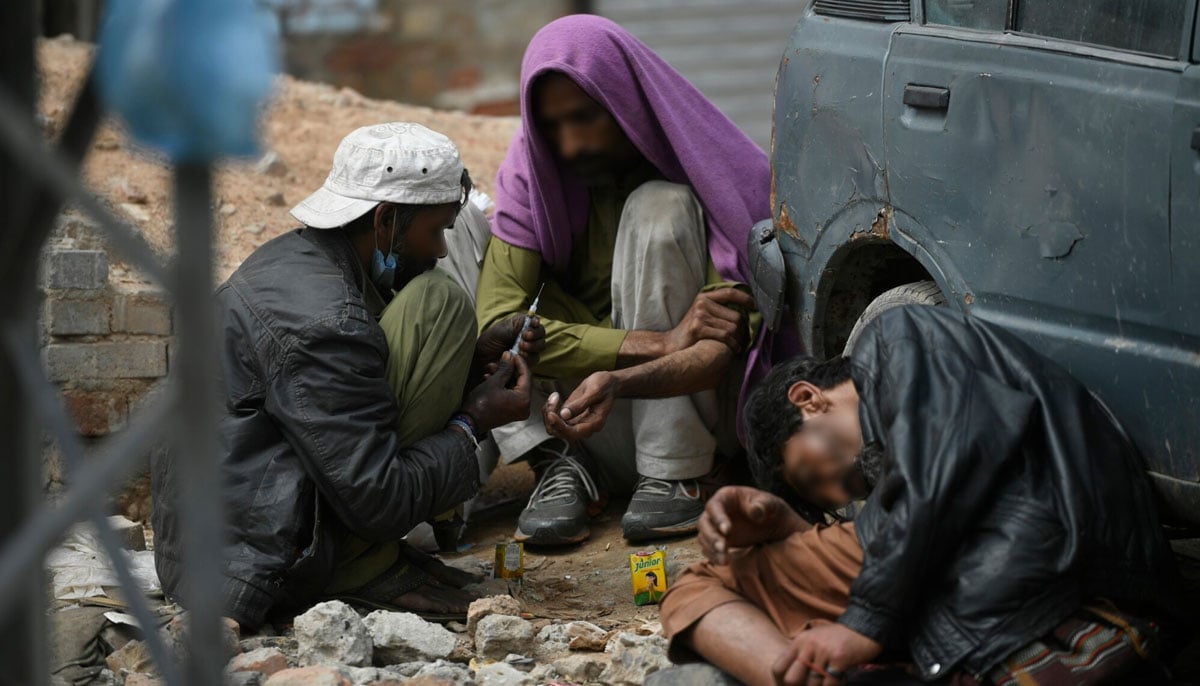
Malika Zafar, the executive director of Nai Zindagi, concurs that the absence of ID cards poses a significant barrier to accessing treatment for individuals who inject drugs and are HIV positive.
"The right to life is a constitutional entitlement," Zafar emphasised to Geo News during a phone interview. "Denying health access to our clients, only 20% of whom possess an ID card, constitutes a violation of this fundamental right."
In order to guarantee that their clients obtain the necessary medical assistance, Zafar and her team, spanning across 58 districts nationwide, do not mandate an ID card as a prerequisite. Individuals who voluntarily seek assistance from Nai Zindagi’s services are assigned a "unique identification number." This number comprises the city code, area code, and a system-generated sequence to safeguard anonymity.
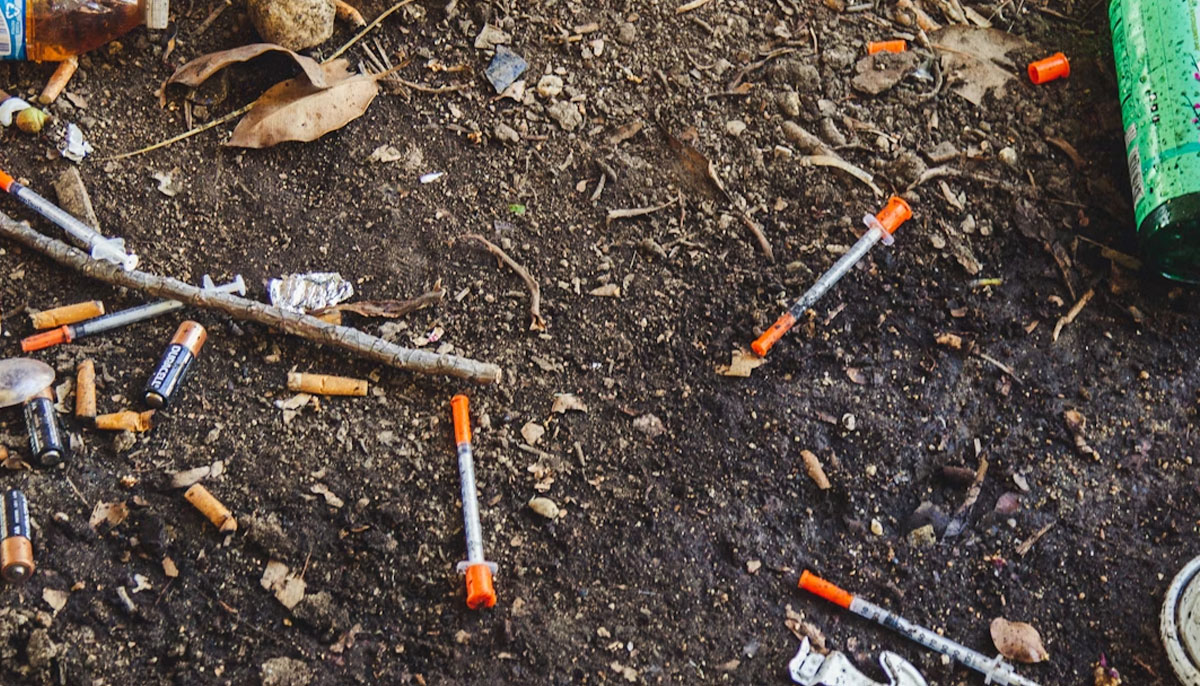
However, Zafar insists that the state too needs to devise a proper policy to address this concern.
According to data from the government-run National AIDS Control Program’s Integrated Biological and Behaviour surveillance report 2016-17, HIV prevalence among individuals who inject drugs is nearly 38.4%. The government has yet to update these figures.
The programme's website further highlights that despite governmental efforts, the HIV infection rate has surged significantly across the country in recent years.
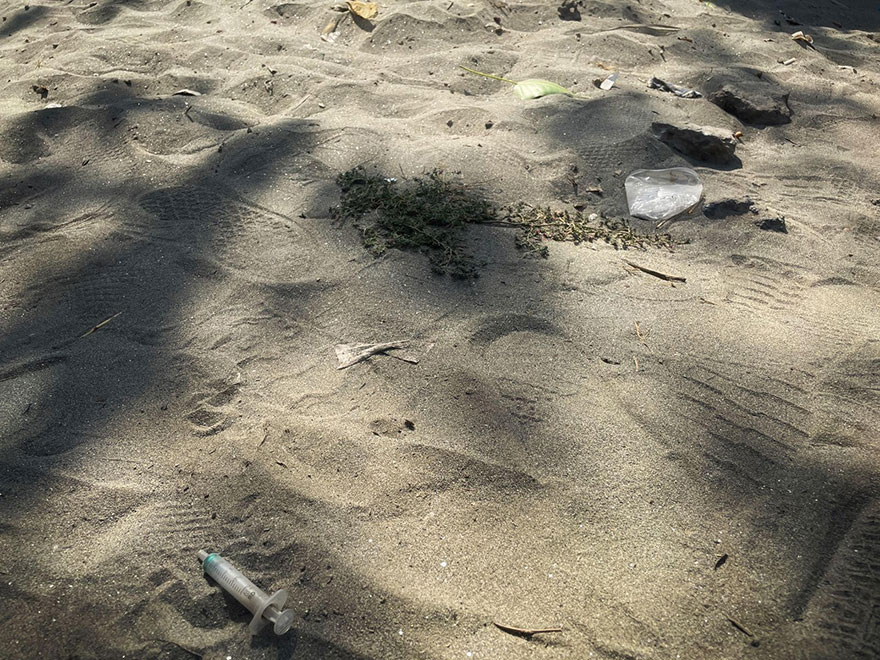
Respect, compassion and a home
Even in the blazing summer heat of a May afternoon, at a time when Lahore is gripped by a dangerous heatwave, site manager Shehryar Ahmad's commitment to aiding the most vulnerable remains steadfast.
He begins work at 6am, with his team traversing the 25 hot spots Nai Zindagi has established in Lahore to provide medical care, assistance, and counseling to individuals who inject drugs.
On a recent visit with Geo News to one of the hot spots near Ferozepur Road, he stands amidst the blistering heat, the temperature soaring to 45 degrees Celsius, in a dusty corner of an old neighborhood in the city, conversing with a man with bandages, track marks, and scabs on his arms.
Around him are young men, and some women, clad in tattered clothes with matted hair, carrying garbage bags, seeking refuge from the sun under an old tree.
“You know what that man said to me,” Ahmad shares, smiling as he approaches. “He said the way you talk to me, even my parents don’t talk to me like that. If you empathise with them, show them some love and compassion, they are willing to change. The government needs to realise that these are also patients who need medical treatment.”
But the pervasive stigma surrounding drug users is another hurdle. Government officials often use derogatory terms when referring to persons with drug dependence, calling them “addicts”, “drug users”, “junkies” or “zombies”.
These terms, stated in a 2018 report by the Global Commission on Drug Policy, carry negative connotations and further stigmatise people who use drugs as if they are “physically inferior or morally flawed.”
The report further advises that political leaders and journalists should instead use expressions such as “person with drug dependence”, “person who uses drugs” or those with “substance use disorder”.
The need for respect in society, was a sentiment echoed by several people Geo News spoke to who formerly used substances or were actively doing so now. One of them is Fauzia, whose story exemplifies the harsh realities faced by women who use drugs.
Now 21, she was only nine years old when her mother died. Unable to care for his daughter, her father would often drop her off at a neighbour’s house, run by a woman who, as per Fauzia, was a “dancer”.
It was here that the young girl was first introduced to methamphetamine, the drug commonly known as ice or crystal meth.
“I used to secretly watch her [the women use ice],” Fauzia told Geo News, “One day when she went to Islamabad for a show, I decided to try it myself.”
Over time, Fauzia said she too began using the drug and eventually found herself on the streets. Today, she is HIV positive. She begs during the day at street corners to make enough to support her substance use.
Now her only “family” is a small-time drug dealer she met on the streets, who adopted her as a sister.
“He is Christian. I am Muslim, but he treats me better than my real brother,” she said smiling, sitting amongst rubble and garbage in an old neighbourhood in Lahore. “He is collecting money these days to enrol me in a [rehabilitation] centre. I want help. I want to get married one day; you know.”
Fauzia adds that it is not easy to beg and to sleep out in the open for a young woman. And neither is society kind to people like her who need help.
“People, men, make dirty jokes about us,” she said. “They don’t treat us right. They say to me, 'Come with us we will give you Rs500'.”
The only respect she gets is from the other users who are homeless like her. For her, the dark corners of the city are her home, and these “junkies” are her only family.
“Here, these people, only they treat me right,” she adds, “For them I am ‘didi’ or ‘kaka’.”
Is the Punjab government paying attention?
Khawaja Salman Rafique, the minister for specialised healthcare and medical education in Punjab, disclosed that all 50 public sector hospitals in the province have allocated 10 beds for individuals with substance use disorders.
Additionally, the social welfare and bait-ul-maal department has established 10 "model drug abuse centres," with plans for more facilities underway.
Regarding the requirement of ID cards for accessing these services, the minister said that a patient's relative or attendant can also provide their ID card number or thumbprint for registration. He added, "The system is designed to directly retrieve data from the National Database and Registration Authority (Nadra) through the patients' thumb impressions."
However, it remains unclear what provisions are in place for patients not registered in Nadra's system at all or those whose families refuse to help them.
Furthermore, the minister acknowledged the stigmatising nature of terms like "junkie" and "drug addict”.
“Victims of substance abuse are, at the end of the day, human,” the minister told Geo News, “And every human has the right to live a dignified life. No individual is born as an addict.”
Geo News also sought comments from Sohail Shaukat Butt, the minister for social welfare in Punjab, and Mohsin Raza Naqvi, the federal minister for the interior, but received no response at the time of reporting.
*Names changed to protect identity.



